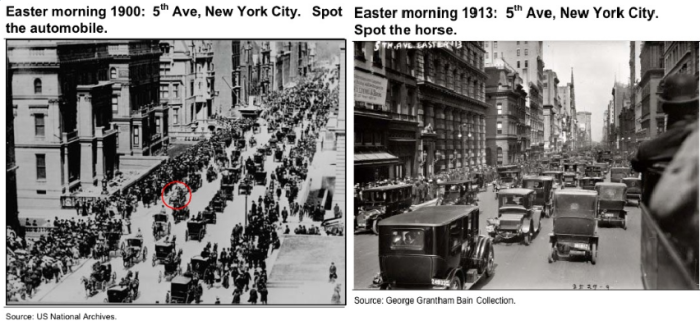Avoiding the losers from self-driving cars
At their recent adviser briefing, Magellan CEO, Hamish Douglass, had cars on his mind. Specifically, driverless cars, and what they mean for investors. While many investors focus on the potential upside in companies like Uber and Tesla, Douglass’ focus on capital preservation means he was more interested in the flow-on effects that autonomous vehicles could have in the broader economy.

Using the example of Wrigley’s, he explained how the switch to self-service checkouts at supermarkets around the world has had an unexpected impact on the sales of Wrigley’s famous chewing gum brands. When consumers used to wait at the checkout while being served, this was a prime opportunity for impulse buying. Now, as we’re busy scanning our own items, we’ve got less opportunity to make mindless purchases.
It might seem like driverless cars are still years or even decades away, but the technology is already here. Alphabet’s self-driving car project, Waymo, is driving 25,000 miles each week in full autonomous mode in their purpose-built cities in California.
Autonomy won’t just change how we drive, it will also change how we own cars, explains Douglass. Rather than own cars, commuters will increasingly turn to car-sharing services like Uber and Lyft to get around. This could save consumers $10,000-$20,000 per annum, resulting in lower wage pressures and therefore inflation in the years to come. It will also free up huge amounts of real estate as car parks become redundant. In Los Angeles alone, there are enough car parks to cover San Francisco three times over.
During question time, one adviser asked a particularly pertinent question: what about infrastructure? Toll road operator, Transurban is a large holding in the Magellan Infrastructure Fund, and outwardly this may appear to be at risk of disruption. However, after discussions with Transurban’s CIO, Douglass does not agree. As the cost of car sharing deflates sharply with autonomous driving, this will allow more people to afford to drive to and from work. In addition, driverless cars will be able to drive closer together, allowing additional traffic to use the roads during peak times.
One sector that could be at particular risk is auto insurance. As autonomy increases, accident rates should decrease significantly. Who needs insurance when there are no accidents anymore?
More from Hamish Douglass
If you're interested in hearing more, we recently caught up with Hamish Douglass for a wide-ranging interview covering his investment philosophy, how YouTube is coming for TV advertising, and his business heroes. Access the interview here.
2 topics
2 stocks mentioned
1 contributor mentioned

